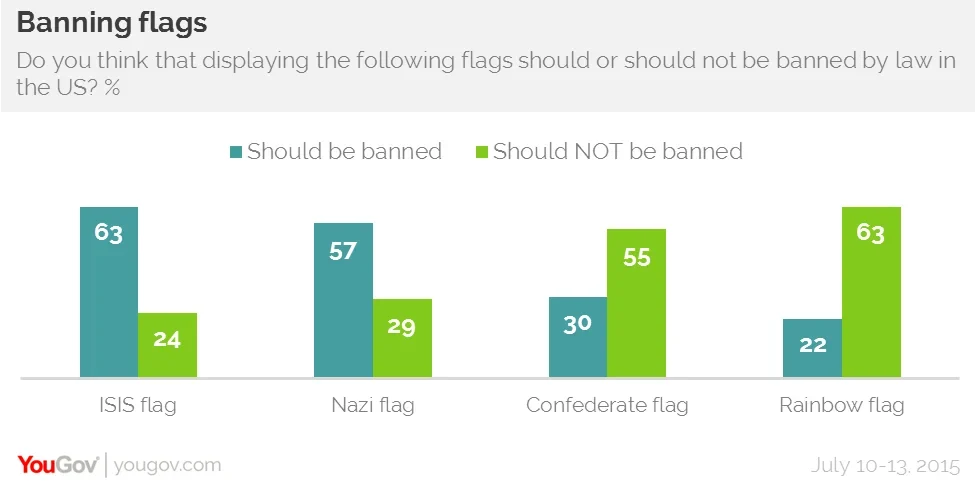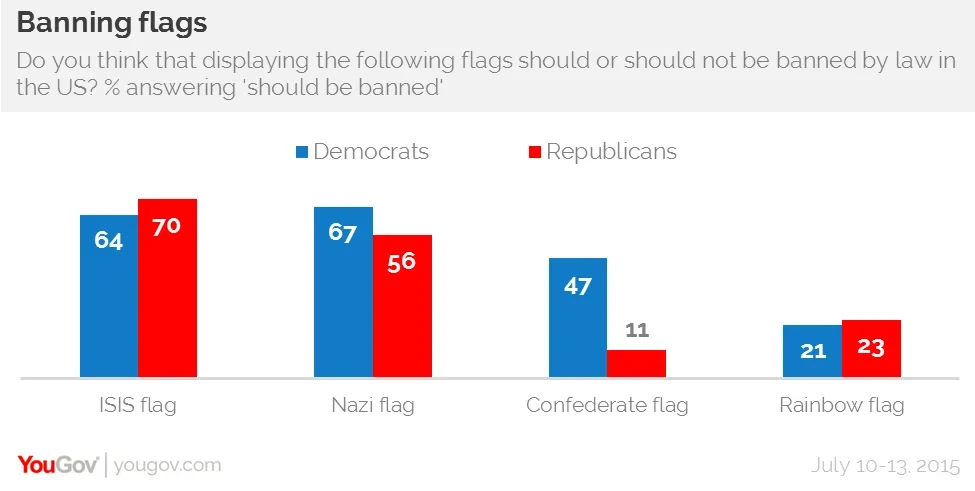America has First Amendment protections Britain lacks, but most people in both countries want to ban certain offensive symbols
The Confederate flag may have been removed from the grounds of the Charleston Capitol and placed in a museum as part of an exhibit on the Confederacy but many Americans continue to fly the flag from their home and cars. The Confederate flag is becoming increasingly taboo for Americans, but unlike in many other countries an attempt to ban the display of that flag, or any other, would be unconstitutional. In Germany and some other European countries display of the Nazis' swastika flag is illegal and in the UK there is a debate over whether displaying the ISIS flag should be a crime.
YouGov's latest research shows that most Americans do support a ban on displaying the flags of ISIS (63%) and the Nazis (57%). Most Americans oppose a ban on either the Confederate flag (55%) or the gay pride rainbow flag (63%). 24% of Americans oppose a ban on displaying the ISIS flag while 29% oppose a ban on the Nazi flag.

Support for banning the ISIS and Nazi flags is even stronger in Britain. There 77% of the public say that the ISIS flag should be banned while only 15% are opposed to the idea. The figures are similar, 75% to 17%, in the case of the Nazi flag.
Both Democrats and Republicans largely agree on the fate of the ISIS, Nazi and rainbow flags. Republicans (70%) are slightly more likely than Democrats (64%) to support banning the display of the ISIS flag are slightly less likely to support a ban on the Nazi flag. Just over 20% of partisans from both party support a ban on the rainbow flag.
When it comes to the Confederate flag, however, 47% of Democrats support a ban while only 11% of Republicans feel the same. Only 36% of Democrats would oppose banning the Confederate flag, half the number of Republicans who do (74%).










